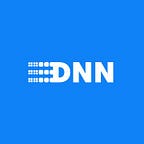@Ev: ‘The Internet is Broken,’ Here’s Our Decentralized Solution
In response to Ev Williams, founder of Medium, co-founder of Twitter, and co-creator of Blogger, and David Streitfeld, author of the recent NYT article, “‘The Internet Is Broken’: @ev Is Trying to Salvage It.”
The Internet is indeed broken. The model that was once developed to facilitate the freedom of information has become a platform that seemingly authenticates every voice, providing a breeding ground for inaccuracy and a platform for unqualified opinions.
To quote Mr. Williams directly, “the trouble with the internet is that it rewards extremes.” Most notably, these extremes live on social and communication-aggregate platforms.
As technology has developed and platforms like Twitter and Facebook have accommodated the thoughts, opinions, and nuggets of information from much of the global population, our attention spans have adjusted accordingly.
To inform one’s self has largely become a lazy pursuit; scroll through your feed (or, arguably, your echo chamber), for what buzzy headline most appeals.
“I thought once everybody could speak freely and exchange information and ideas, the world is automatically going to be a better place, I was wrong about that.”
We too believe in the power of a platform that encourages and rewards thoughtfulness, as Medium strives to do, but thanks to the recent barrage of fake news over the 2016 political cycle, it has been well proven that we can’t be trusted to manage ourselves autonomously, especially when you can simply share at will and then delete, without consequence of misinformation.
Structure is necessary for the community to manage the flow of information as necessary. Wikipedia and Reddit serve as baseline proof of this; the community structure is developed via a set of clear values that all participants believe in.
Where social media has both contributed to the success of globalization and decline of authenticity and transparency of information is in its inherent equality.
While we still believe in the societal necessity for democratic sharing of information and global communication, naturally, we also believe that the free-for-all nature of social media platforms has broken credibility; how do you prove it, how do you monitor it?
A valuable component of the Internet, credibility and authentication underpin trust in the digital world. Accreditation can’t be done simply with a seal of verification, real credibility is derived from community validation; proof of work and performance. Today, blockchain allows us to verify that trust in an immutable data chain, recording in real-time what has transpired or been transacted.
“If [Mr. Williams] and others can’t find a path forward, if they can’t solve what he calls ‘the architecture of content creation, distribution and monetization on the internet,’ there are unsettling implications for the future of news and ideas.”
Given our platform, we could not agree more.
A new architecture for the creation, curation, and publication of content is the very premise of the Decentralized News Network, leveraging the Ethereum blockchain to make the process both democratic and scalable. Ethereum’s smart contract applications allow us to build a fair, anonymous, and trustworthy review process to ensure the validity and unbiased nature of the content published to DNN.
In a previous post we explained, “decentralizing authority is democratic, that’s why blockchain technology has become a model for the new trust economy; blockchain allows for autonomous distribution of information.”
“[Medium’s] ambition: define a new model for media in a world struggling under the weight of fake or worthless content.”
Layering a collaborative and values-based community over blockchain technology, which has the power to incentivize truth and transparency, DNN can act as a block to the virality of fake news. “Smash-ups” need not bother submitting.
“There’s a lock on our office door and our homes at night. The Internet was started without the expectation that we’d have to do that online.”
The DNN platform features a review system of smart contracts that act as metaphorical locks between submitted articles and the anonymous committee of reviewers, keeping the overly opinionated and unsubstantiated news out.
Decentralized consensus encourages ideas to come from anywhere, but ensures a “level playing field” amongst contributors by way of a community that rewards good work and good performance.
“Ad-driven systems can only reward attention,” Mr. Williams says. “They can’t reward the right answer. Consumer-paid systems can. They can reward value. The inevitable solution: People will have to pay for quality content.”
By virtue of consolidated media control and corporate interests, systems driven by advertising revenue reward attention, impressions. We see this today, demonstrated by the publishing of personal bias and unsubstantiated content delivered as news with the objective of pandering to a base.
The existing content compensation system clearly isn’t working, so we’ve developed a token-driven system; DNN’s own digital currency will facilitate the writing and reviewing of content for our digital news platform. Even readers are incentivized to suggest topics and contribute.
With a token-driven model, every user is an active participant in DNN. Thus, the entire community has a vested interest in the content that is produced and published.
DNN is news for the people, by the people.
Demo coming soon. In the meantime, join us on BitcoinTalk and Slack.
